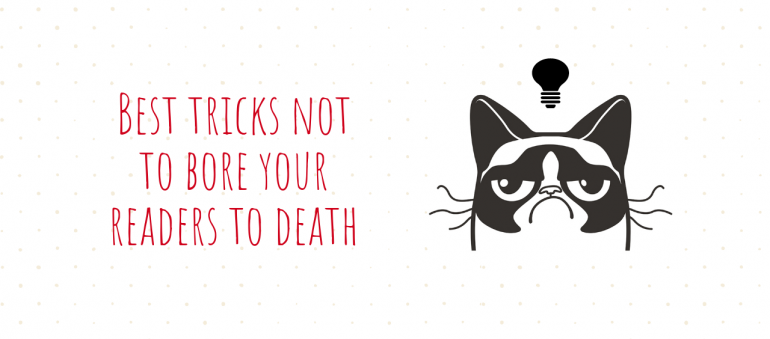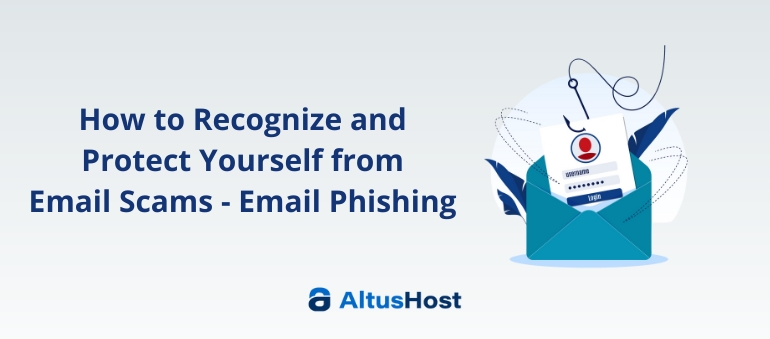Writing isn’t just about imparting knowledge. It’s also about entertaining your audience. Some people seem to struggle with that second part, though. They have a lot of interesting things to say and yet somehow make whatever they’re saying intensely boring.
Now, if you’re one of those people you might despair. You might think it’s inherent in your writing and there is nothing you can do about it. We’re here to tell you nothing could be further from the truth. You can make your writing more energetic and interesting if you just know what you’ve got to do.
Here we’re going to explore some simple things you can do to engage your audience and avoid boring people to death. You ready? Here we go!
Stay on point
If you want to keep your reader interested, make sure you keep telling them about the subject matter that you used to draw them in. If for example, I suddenly went off on a tangent where I started talking about cats or shoes (or cats with shoes!) then a great many people in my audience would switch off.
Why?
Because that’s not what they came here for. They were interested in learning how to not bore their audience. They didn’t come here to learn about cats or shoes or even cats with shoes. Sure, it might entertain some people, but unless it’s a very clever metaphor for not boring your audience (neither cats nor shoes can’t write boring essays?) then it really shouldn’t be a part of your text.



If you’re somebody who sometimes drifts, then make sure you have a thesis before you start your article – in case you’re not familiar with that term outside of the university, a thesis – according to dictionary.com – is ‘an unproven statement as a premise in an argument.’ The thesis of this article would be ‘Strategies not to bore your audience’.
Whenever I type something I ask myself ‘does this contribute to my thesis? Does this support my argument?’ If the answer is ‘no’, then it needs to be damned interesting or funny to stay in the text. Otherwise, it gets cut.
Use short sentences
The harder your audience has to work the more tedious your writing is going to be. This is because they’ll have to slow down and constantly re-read sentences. And that’s boring – particularly as we went to get on to the next point.
Basically, as soon as you start using connector words (‘or’, ‘and’, ‘therefore’) you’ll want to stop and think if a period wouldn’t work better.
Even better, use something like readable.io or the Hemingway app to tell you if your text is too difficult and too wordy. Then take the especially difficult sentences under the loop and do your best to simplify them.
Your audience will be grateful to you.
Stop hedging
Okay, we get it. You’re not terribly certain about your opinion. Nobody really is. Still, if you constantly keep reminding people by hedging your words (‘I believe’, ‘It is possible that’, ‘perhaps’) then your readers are going to roll their eyes and go find somebody who is a little bit more secure in their feelings.
That doesn’t mean you should never hedge. Sometimes it’s important you make it clear you aren’t certain about something or that there are exceptions (like I’m doing right here). In that case, go ahead and hedge your words. The thing is, if this is something you’re doing with every sentence then when you really need to hedge your words your readers aren’t going to pay attention to that as they’ve learned to read past your hedges (or already abandoned your article entirely).
What the fluff?
Okay, this is wildly simplified, but in essence, it is true. The impact of your article is the value of what you’re saying divided by the number of words you need to say it.
For that reason, if you can say the same thing with fewer words, then it will have a bigger impact as you’re giving your audience more bang for their buck.
For this reason, whether you’re writing papers or for your blog online you should look to remove all superfluous words from your text.


Well, Wikipedia tells us: An adverb is a word that modifies a verb, adjective, another adverb, determiner, noun phrase, clause, or sentence. Adverbs typically express manner, place, time, frequency, degree, level of certainty, etc., answering questions such as how? in what way? when? where? and to what extent?
Now, sometimes they’re very useful. The thing is, that’s far less frequent than most starting writers think.
For example, you might write ‘she silently tiptoed through the room’ but what does ‘silently’ really add here? Isn’t it clear from the tiptoeing that she is trying to be silent? Similarly, you might put ‘he rudely interrupted her in the middle of her speech’ but here too we can figure out he is being rude by the fact that he interrupted her. We don’t need to be told.
So cut those words!
Edit
In fact, editing is generally a good idea. In truth, the best writers aren’t necessarily great writers, but they’re phenomenal editors. You can think of it as sculpting. First, you use the big ass chisel to cut the rough shape out of the stone. But when you really want to finesse a text, you need to go back and use the smaller chisel, the sandpaper and whatever else you use to add detail to a sculpture (Sorry, not a sculptor).
That’s what editing is. It lets you take the rough shape of your text and turn it into a truly great piece of work.
It’s a good idea to do different types of editing. If I edit a text, then First I’ll go through the text to chop sentences in half, take out pieces of text that don’t belong and increase the readability. Then I’ll through it again, using something like readable.io or Hemingway to get rid of the long sentences, the numerous adverbs and the other problems I might find.
And then, I’ll go through one more time to edit for grammar and spelling mistakes (I’ll use Grammarly for that). And only then is the test done. Yes, that does sound boring, but you see – it’s better I’m bored than that I bore my readers.
Conclusion
There is good news and there is bad news. The bad news is that writing isn’t something you’re going to be great at on day one. It takes hard work. It takes dedication. I’ve been writing for decades and I still produce texts which nearly make me weep.
The good news is that you can get better. If you put in the effort your writing will improve and you will notice it improving. Even better, as you improve as a writer you’ll also notice things that were hard before get easier. You’ll be able to write faster, without errors and in a generally more coherent manner.
All it takes is actually sitting down and doing the hard work of writing. Keep that up for long enough and eventually, you will excel. And then you will realize it was all worth it.
About the author: Kathleen Wallace is a freelance writer who is seeking to discover new ways for personal and professional growth. Currently she`s trying to improve herself in the blogging career. Kathleen is an experienced and self-driven specialist who cannot imagine her life without writing.





